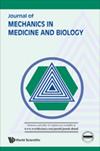甲状腺结节危险因素分析及其与糖尿病、脑卒中的相关性研究
IF 0.6
4区 医学
Q4 BIOPHYSICS
引用次数: 0
摘要
为了探讨甲状腺结节的危险因素及其与糖尿病和脑卒中的相关性,作者对1000例代谢综合征(MS)患者进行了研究。分析包括性别、年龄、家族性甲状腺疾病、盐摄入量、碘摄入量、吸烟、饮酒、睡眠质量、精神压力、运动、BMI、血压、糖尿病和基线结节等变量。采用机器学习中的Apriori算法推导出12条关联规则([公式:见文]),采用决策树算法推导出20条有效知识规则。结果显示,碘摄入量、盐摄入量、BMI和高龄是甲状腺结节的高危因素。运动、BMI和年龄有很强的相关性,而运动、精神压力、碘摄入量和盐摄入量有很强的相关性。运动、睡眠、吸烟和饮酒影响精神压力,而年龄、疾病(糖尿病、高血压、肥胖)和生活习惯影响睡眠质量。甲状腺结节患者患糖尿病和中风的风险增加,糖尿病、中风和甲状腺结节之间有很强的相关性。本文章由计算机程序翻译,如有差异,请以英文原文为准。
Analysis of Risk Factors for Thyroid Nodules and Study on Their Association with Diabetes and Stroke
To explore the risk factors for thyroid nodules and their correlation with diabetes and stroke, the authors conducted a study on 1000 patients with metabolic syndrome (MS). The analysis included variables such as gender, age, familial thyroid disease, salt intake, iodine intake, smoking, alcohol consumption, sleep quality, mental stress, exercise, BMI, blood pressure, diabetes, and baseline nodules. The Apriori algorithm of machine learning was used to derive 12 association rules ([Formula: see text]), and the decision tree algorithm was used to derive 20 effective knowledge rules. The results showed that iodine intake, salt intake, BMI, and advanced age were high-risk factors for thyroid nodules. Exercise, BMI, and age were strongly correlated, while exercise, mental stress, iodine intake, and salt intake showed a strong correlation. Exercise, sleep, smoking, and alcohol consumption influenced mental stress, while age, diseases (diabetes, hypertension, obesity), and lifestyle habits influenced sleep quality. The risk of diabetes and stroke increased in patients with thyroid nodules, and there was a strong correlation among diabetes, stroke, and thyroid nodules.
求助全文
通过发布文献求助,成功后即可免费获取论文全文。
去求助
来源期刊

Journal of Mechanics in Medicine and Biology
工程技术-工程:生物医学
CiteScore
1.20
自引率
12.50%
发文量
144
审稿时长
2.3 months
期刊介绍:
This journal has as its objective the publication and dissemination of original research (even for "revolutionary concepts that contrast with existing theories" & "hypothesis") in all fields of engineering-mechanics that includes mechanisms, processes, bio-sensors and bio-devices in medicine, biology and healthcare. The journal publishes original papers in English which contribute to an understanding of biomedical engineering and science at a nano- to macro-scale or an improvement of the methods and techniques of medical, biological and clinical treatment by the application of advanced high technology.
Journal''s Research Scopes/Topics Covered (but not limited to):
Artificial Organs, Biomechanics of Organs.
Biofluid Mechanics, Biorheology, Blood Flow Measurement Techniques, Microcirculation, Hemodynamics.
Bioheat Transfer and Mass Transport, Nano Heat Transfer.
Biomaterials.
Biomechanics & Modeling of Cell and Molecular.
Biomedical Instrumentation and BioSensors that implicate ''human mechanics'' in details.
Biomedical Signal Processing Techniques that implicate ''human mechanics'' in details.
Bio-Microelectromechanical Systems, Microfluidics.
Bio-Nanotechnology and Clinical Application.
Bird and Insect Aerodynamics.
Cardiovascular/Cardiac mechanics.
Cardiovascular Systems Physiology/Engineering.
Cellular and Tissue Mechanics/Engineering.
Computational Biomechanics/Physiological Modelling, Systems Physiology.
Clinical Biomechanics.
Hearing Mechanics.
Human Movement and Animal Locomotion.
Implant Design and Mechanics.
Mathematical modeling.
Mechanobiology of Diseases.
Mechanics of Medical Robotics.
Muscle/Neuromuscular/Musculoskeletal Mechanics and Engineering.
Neural- & Neuro-Behavioral Engineering.
Orthopedic Biomechanics.
Reproductive and Urogynecological Mechanics.
Respiratory System Engineering...
 求助内容:
求助内容: 应助结果提醒方式:
应助结果提醒方式:


